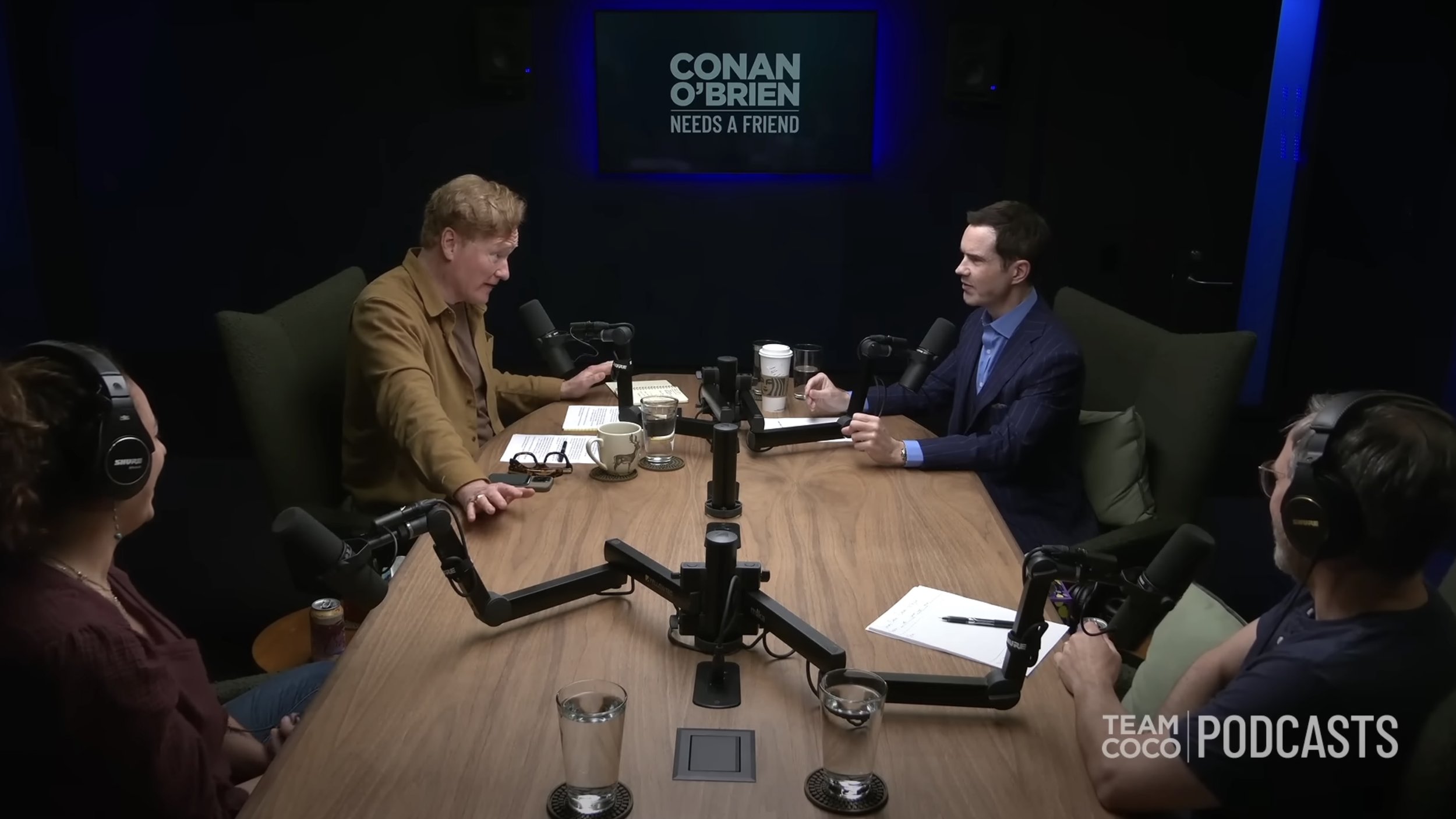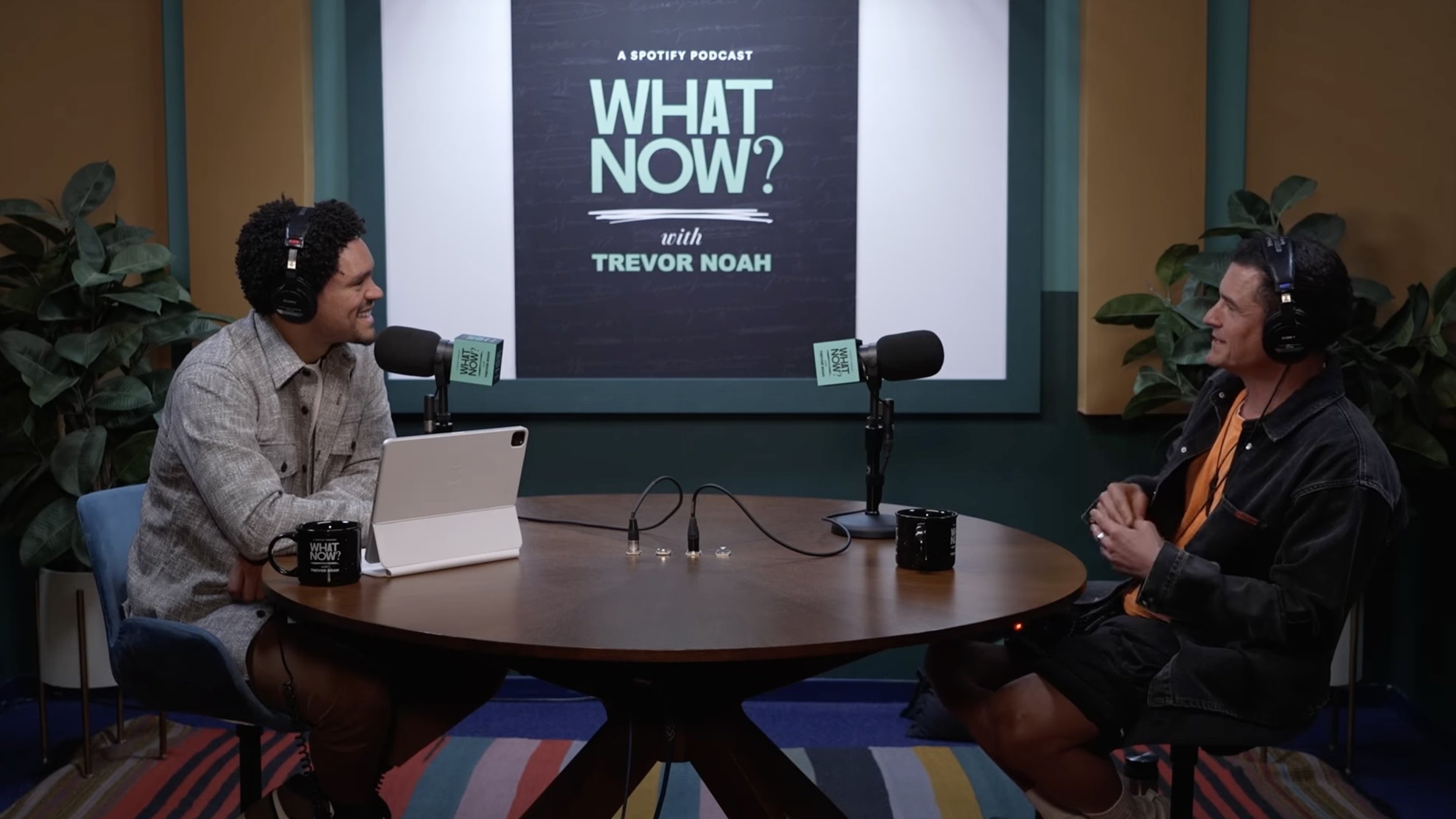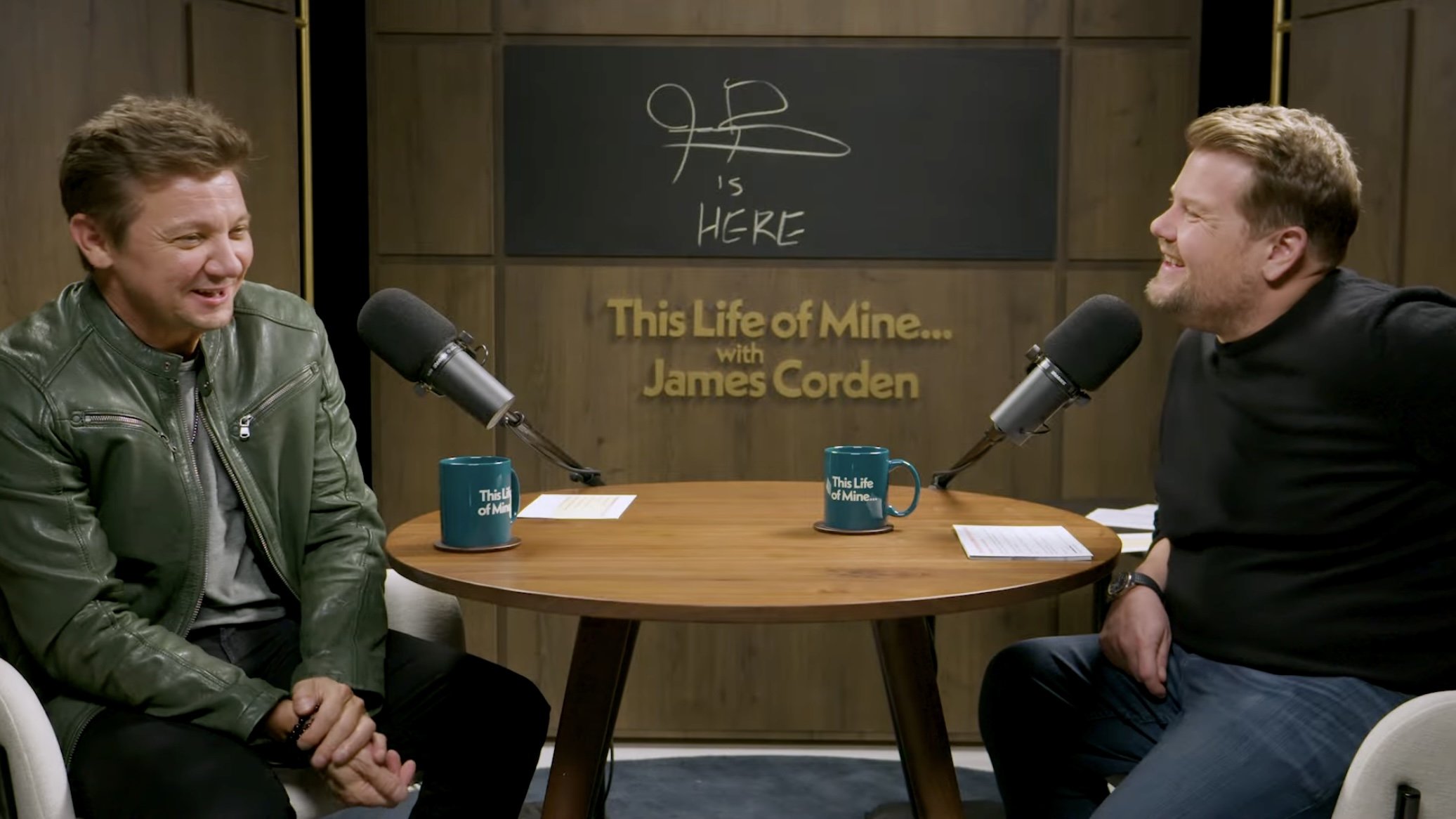Lights Out, Mics On: Late-Night Hosts Move to Podcasts
Just two weeks ago, we witnessed the birth of a new podcast. Andy Samberg, Akiva Schaffer, and Jorma Taccone, famously known as The Lonely Island comedy trio for their work on Saturday Night Live, reunite with fellow SNL alumnus and current Late Night host Seth Meyers for The Lonely Island and Seth Meyers Podcast. Together, they embark on a trip down memory lane as they discuss the trio’s popular SNL digital shorts episode by episode from 2005 onwards.
The Lonely Island joins Seth on Late Night with Seth Meyers via Zoom to celebrate their new podcast
Last week, Meyers stopped by Jimmy Kimmel Live! to talk about his new podcast, but things took an unexpected turn when Andy Samberg made a surprise appearance mid-interview. Samberg interrupts Meyers to yell, "Podcasts suck!" while adding, "Literally everyone has a podcast now!" In classic Samberg fashion, the comedian strikes again as he expresses disdain for podcasts, much like his infamous hatred of Frisbee, Meyers’ Italian Greyhound. Yet, amidst the humor, part of his declaration does ring true: everyone has podcasts now.
In light of this trend, Meyers seems to be doubling down on his podcasting game. I was certainly excited but surprised to find that he had decided to take on yet another podcast. Not only does he have a daily job as the host of NBC’s Late Night with Seth Meyers, but he’s also in Family Trips with the Meyers Brothers, a separate podcast he hosts with his brother Josh, where they ask guests to share childhood memories and unforgettable family trips. Even his own talk show has a podcast of its own: the Late Night with Seth Meyers Podcast. (One would think: how does he even have time for all these?)
Meyers isn’t the only late-night comedy host to pursue podcasting. Conan O’Brien, for instance, has been in the game since 2018 with Conan O'Brien Needs A Friend. Following his tenure as the host of Comedy Central's The Daily Show, Trevor Noah has also been spending his time hosting the weekly podcast What Now? with Trevor Noah since November. Even James Corden, having bid farewell to The Late Late Show in April last year, has recently joined the podcast scene with This Life of Mine with James Corden, which launched exclusively on SiriusXM in February. Each one of these is still some form of celebrity interview, similar to the hosts’ former late-night talk shows but with much lengthier conversations that rely solely on audio. Could this be the destiny of all former late-night talk show hosts, a career move that lets them cling to the "talk" in talk shows but sacrifices the "TV" in late-night TV?
As it happens, even today’s late-night hosts are no strangers to the podcast medium, having joined the trend when they, themselves, were out of jobs. Last year, Stephen Colbert, Jimmy Fallon, Jimmy Kimmel, Seth Meyers, and John Oliver all teamed up for a limited series podcast called Strike Force Five to support their out-of-work staff during the writers’ strike. The podcast concluded after 12 episodes, shortly after they returned to their late-night jobs when the strike ended, as a tentative agreement had been reached between the Writers Guild of America (WGA) and the Alliance of Motion Picture and Television Producers (AMPTP).
Jimmy Kimmel, Seth Meyers, John Oliver, Stephen Colbert, and Jimmy Fallon team up for Strike Force Five
But as Meyers proves by juggling between podcasts, being out of a job as the host of a late-night talk show isn’t a prerequisite for diving into the world of podcasting. They could start a new podcast or even launch podcast versions of existing talk shows like The Late Show Pod Show with Stephen Colbert and The Daily Show: Ears Edition, which are pretty much audio-only versions of the interviews and monologues you see on-screen. So what’s stopping everyone else from starting one? Is The Tonight Show, for instance, simply too visual-dependent, unable to survive in an audio-only format? Indeed, Fallon is known for his hilarious games and sketches, among other comedy routines, and it’s possible that they could lose their impact without a visual element. After all, what are those costumes and elaborate set designs for if not to be seen?
Since podcasts lack these eye-catching visuals, then why have they become such a hit? We’ve certainly seen a rise in podcasts and a decline in radio, but what’s the difference between the two? Radio might have been the go-to choice for vehicle owners way back when, since all they had to do was turn on the car stereo to listen in. Unfortunately, they were stuck with a limited number of channels, left with no choice but to listen to whatever was on at the time. Podcasts, on the other hand, are all about what you want and when you want it. Listeners can access thousands of podcasts from anywhere as long as they have a phone (and nowadays, who doesn’t?). Although you could technically listen to the radio on the go, you'd need to have a radio receiver with you at all times. And in a walkable city like New York, for instance, you could happily live without a car, so you might rarely find yourself in the presence of a radio.
Mobility is undoubtedly one of the strongest selling points of podcasts, but as they vie for your time, they face competition: music. The decision to choose between the two usually depends on what you’re doing. If you have a pressing task that requires you to actively think, then songs or instrumental music might suit you better and help you stay focused. But if you find yourself doing something requiring less mental effort, from walking your dog to something as simple as cleaning up, you’ll have no problem tuning in to podcasts. Having moved to the walking city of New York only a few months ago, I’ve noticed that even my recent Spotify activity has slowly filled up with podcasts, as I usually find myself listening to them when I’m navigating the streets or moving between buildings.
Podcasts are definitely one of today’s rising stars, and as the podcast world continues to expand, new trends are sure to emerge and evolve. Perhaps we’ll see even more podcast advertising or providers offering subscription plans for ad-free and ad-supported listening. Maybe AI will make its way to podcasts as it continues to grow and spread. Or will there be a surge of vodcasts (podcasts with visual content), which have already started to gain traction, whether it be Spotify’s new “switch to video” toggle or the loads of TikToks that feature podcast recordings? Perhaps more notable figures like Fallon might hop on the podcast game too. Who knows what will become of the podcast scene? Only time will tell. But one thing is certain: podcasts aren’t going anywhere anytime soon.
UPDATE (4/30/2024): As anticipated, Jimmy Fallon has finally joined the podcast trend with the official launch of The Tonight Show Podcast earlier today. Fans of the late-night show can now enjoy Fallon’s monologues, extended interviews, sketches, games, and many more through this audio platform. Indeed, podcasts continue to reshape the way audiences engage with their favorite content as the world of podcasting continues to expand.






